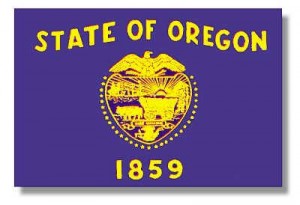The appeal of AT&T Corporation v. Commissioner from the Massachusetts Appellate Tax Board (“ATB”) was among the 10 most requested dockets on the Supreme Judicial Court of Massachusetts website. It’s unlikely that observers got exactly what they expected because the decision came with a considerable caveat.
 On July 13, 2012, the Massachusetts Appeals Court affirmed the decision of the ATB under Rule 1:28. A decision under Massachusetts Appeals Court Rule 1:28 exists somewhere between an unpublished decision and a per curium opinion. The rule is reserved for the summary disposition of cases where the panel of judges “determine that no substantial question of law is presented by the appeal.” It normally is not accompanied by an opinion (as was the case here) and is regarded as an unpublished decision by the Appeals Court. However, it is not regarded in exactly the same fashion as an unpublished decision in the federal context. Prior to 2008, and the Massachusetts Appellate Court’s decision in Chace v. Curran, 71 Mass. App. Ct. 258, appeal denied, 451 Mass. 1103 (2008), unpublished decisions were not to be relied upon or cited as authority. The Chace opinion, which was accompanied by an official amendment to the court rules, changed the status of Rule 1:28 decisions by holding that unpublished decisions “may be cited for persuasive value but…not as binding precedent.”
On July 13, 2012, the Massachusetts Appeals Court affirmed the decision of the ATB under Rule 1:28. A decision under Massachusetts Appeals Court Rule 1:28 exists somewhere between an unpublished decision and a per curium opinion. The rule is reserved for the summary disposition of cases where the panel of judges “determine that no substantial question of law is presented by the appeal.” It normally is not accompanied by an opinion (as was the case here) and is regarded as an unpublished decision by the Appeals Court. However, it is not regarded in exactly the same fashion as an unpublished decision in the federal context. Prior to 2008, and the Massachusetts Appellate Court’s decision in Chace v. Curran, 71 Mass. App. Ct. 258, appeal denied, 451 Mass. 1103 (2008), unpublished decisions were not to be relied upon or cited as authority. The Chace opinion, which was accompanied by an official amendment to the court rules, changed the status of Rule 1:28 decisions by holding that unpublished decisions “may be cited for persuasive value but…not as binding precedent.”
The affirmation of the ATB’s decision certainly was a good thing for AT&T even if the application of those facts to others might be approached with some caution. AT&T was subject to the Massachusetts public service corporation franchise tax. They sought a refund of taxes when they changed their approach to apportioning service income earned in Massachusetts. The Department of Revenue rejected the refund claim and they ended up in front of the ATB.
The central issue is what receipts should be included in the sales factor of Massachusetts apportionment purposes. Service income earned in Massachusetts is sourced to the commonwealth using a two-part analysis, often referred to as “cost of performance.” The first step is to determine the income producing activity. The second step is to then to determine if the greater portion of the cost of performing that activity occurs in Massachusetts or elsewhere.
The nature of the income producing activity was crucial to the ATB’s analysis of AT&T’s refund position. The Commissioner of the Department of Revenue argued that AT&T’s income should be measured based on each individual call or data transmission – the transactional approach. Under that analysis, the costs of performing each transaction was greater in Massachusetts than anywhere else, do the income from all the calls would be sourced to Massachusetts and subject to tax by Massachusetts.
AT&T countered that its income producing activity was “providing a national, integrated telecommunications network” – the operational approach. Of course, under AT&T’s method most of the costs related to performing the income producing activity happened at their corporate headquarters in New Jersey, outside of Massachusetts, thus depriving Massachusetts of the privilege of taxing the income.
AT&T had lost this argument in the Oregon Tax Court, but prevailed in the ATB. The ATB found that AT&T’s system of re-routing calls, sometimes across the nation, to make a connection in response to heavy network demands, and the unpredictability of that routing, illustrated that the income producing activity was part of an entire integrated network. It was this decision that the Appeals Court affirmed with its ruling.
The Appeals Court did not issue an opinion with its ruling, but you can read the ATB’s decision here.
AT&T Corp. v. Massachusetts, ATB 2011-524 (June 8, 2011)


